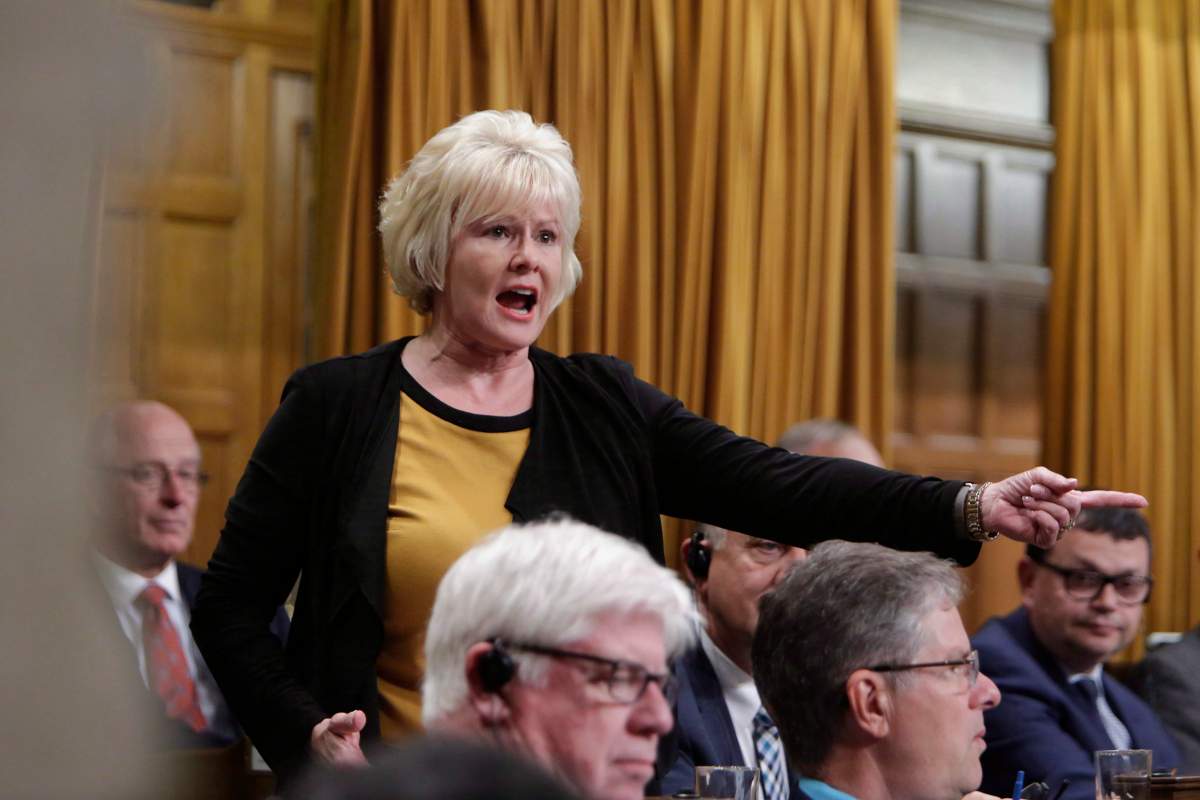OTTAWA — Rural communities and an MP are raising concerns about the impact a potential work stoppage at Canada Post could have on Ontario’s municipal elections.

The Crown corporation and the Canadian Union of Postal Workers extended their contract negotiations beyond an early-Wednesday deadline for a strike or lockout, providing some hope that new deals can be struck without a service disruption.
But in the absence of agreements, small communities that rely on mail-in ballots for the Oct. 22 vote said they were looking for alternative ways for constituents to exercise their civic duty.
The Municipality of Dysart et al, in Ontario’s cottage country north of Toronto, said it could be heavily impacted by a postal strike.
“Election staff are working on a contingency plan in the event of a postal strike,” the regional community said in a tweet.
WATCH: Possible Canada Post strike looming

Just to the west, Brock Township has informed voters not to mail their ballots until there’s confirmation a strike or lockout will be avoided.

Get breaking National news
“We are encouraging people to just hold onto their (election) kit until there’s some direction, one way or the other, from Canada Post,” Tom Gettinby, the township’s clerk and chief administrative officer, told The Canadian Press.
There were about 10,000 eligible voters in Brock at the time of the last municipal election in 2014. Of those, roughly 4,400 cast ballots, Gettinby said.
READ MORE: Here’s why Canada Post workers are threatening to go on strike
And while the township is encouraging local voters to drop off their completed ballots to municipal offices in the event of job action at Canada Post, many eligible electors are part-time residents who live and work in Toronto for much of the year.
“What we don’t want to see happen is they put the ballot in the mail and then all of a sudden there’s a disruption in the postal service, and their ballot is in some warehouse in Toronto,” said Gettinby.
Conservative MP Cheryl Gallant, who represents the rural Renfrew-Nipissing-Pembroke riding northwest of Ottawa, said she has heard from several isolated municipalities worried about how a Canada Post shutdown will affect their mail-in votes.
WATCH: Liberals not restoring door-to-door Canada Post service

“A Canada Post strike during the Ontario municipal elections will result in Canadians being deprived of their say in the election,” Gallant wrote on her website.
“Online voting was not an option due to absence of internet coverage in these rural areas.”
A postal disruption would impact each community differently, depending on how much they rely on mail services, said the Association of Municipalities of Ontario.
READ MORE: Canada Post workers consider possible strike over pay equity dispute
“Municipalities use mail services for election-related materials to different degrees, so the impact of a postal disruption would vary across Ontario,” AMO president Jamie McGarvey said in an email.
- More than half of small businesses say U.S. no longer reliable: CFIB data
- The Bank of Canada says these are the 3 warning signs for mortgage default
- Carney says Canadian military participation in Middle East war can’t be ruled out
- Canadians want floor-crossing MPs to face ‘immediate’ byelections: poll
“Municipal clerks understand the importance of ensuring smooth elections. They work hard to plan for municipal elections and anticipate solutions when needed.”
The Canadian Union of Postal Workers, or CUPW, said Monday it would not issue a 72-hour notice of job action but warned there could be job action if there was no progress in the talks. Key issues revolve around wages and working conditions.
READ MORE: Canada Post work stoppage — What you need to know if service stops
A CUPW spokesman said the union was waiting for comprehensive counter proposals to the wide-ranging offers it presented to Canada Post on Sept. 14. In the meantime, negotiators were still meeting at an undisclosed hotel in Ottawa, said Kevin Matthews.
A collective agreement affecting the agency’s 42,000 urban postal workers expired in January. Rural and suburban carriers saw their agreement lapse in December 2017. CUPW is hoping to merge the two contracts in the current round of bargaining.
There was a risk of a work disruption at Canada Post in 2016, but it was avoided when both sides agreed to carve out a contentious pay-equity dispute and put it in the hands of an arbitrator, who issued a ruling on the issue last week.
The last time the agency locked out its unionized employees was in 2011. The federal government, however, quickly put an end to the lockout through legislation that a court later ruled was illegal.







Comments
Want to discuss? Please read our Commenting Policy first.